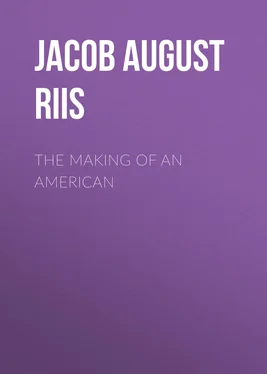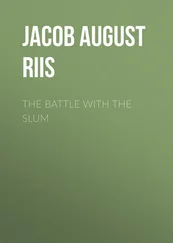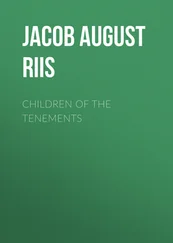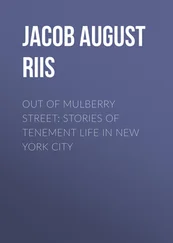Jacob August Riis - The Making of an American
Здесь есть возможность читать онлайн «Jacob August Riis - The Making of an American» — ознакомительный отрывок электронной книги совершенно бесплатно, а после прочтения отрывка купить полную версию. В некоторых случаях можно слушать аудио, скачать через торрент в формате fb2 и присутствует краткое содержание. Жанр: Биографии и Мемуары, История, foreign_edu, foreign_antique, foreign_prose, на английском языке. Описание произведения, (предисловие) а так же отзывы посетителей доступны на портале библиотеки ЛибКат.
- Название:The Making of an American
- Автор:
- Жанр:
- Год:неизвестен
- ISBN:нет данных
- Рейтинг книги:5 / 5. Голосов: 1
-
Избранное:Добавить в избранное
- Отзывы:
-
Ваша оценка:
- 100
- 1
- 2
- 3
- 4
- 5
The Making of an American: краткое содержание, описание и аннотация
Предлагаем к чтению аннотацию, описание, краткое содержание или предисловие (зависит от того, что написал сам автор книги «The Making of an American»). Если вы не нашли необходимую информацию о книге — напишите в комментариях, мы постараемся отыскать её.
The Making of an American — читать онлайн ознакомительный отрывок
Ниже представлен текст книги, разбитый по страницам. Система сохранения места последней прочитанной страницы, позволяет с удобством читать онлайн бесплатно книгу «The Making of an American», без необходимости каждый раз заново искать на чём Вы остановились. Поставьте закладку, и сможете в любой момент перейти на страницу, на которой закончили чтение.
Интервал:
Закладка:
It was too much. Inwardly raging, I shook the dust of the city from my feet, and took the most direct route out of it, straight up Third Avenue. I walked till the stars in the east began to pale, and then climbed into a wagon that stood at the curb to sleep. I did not notice that it was a milk-wagon. The sun had not risen yet when the driver came, unceremoniously dragged me out by the feet, and dumped me into the gutter. On I went with my gripsack, straight ahead, until toward noon I reached Fordham College, famished and footsore. I had eaten nothing since the previous day, and had vainly tried to make a bath in the Bronx River do for breakfast. Not yet could I cheat my stomach that way.
The college gates were open, and I strolled wearily in, without aim or purpose. On a lawn some young men were engaged in athletic exercises, and I stopped to look and admire the beautiful shade-trees and the imposing building. So at least it seems to me at this distance. An old monk in a cowl, whose noble face I sometimes recall in my dreams, came over and asked kindly if I was not hungry. I was in all conscience fearfully hungry, and I said so, though I did not mean to. I had never seen a real live monk before, and my Lutheran training had not exactly inclined me in their favor. I ate of the food set before me, not without qualms of conscience, and with a secret suspicion that I would next be asked to abjure my faith, or at least do homage to the Virgin Mary, which I was firmly resolved not to do. But when, the meal finished, I was sent on my way with enough to do me for supper, without the least allusion having been made to my soul, I felt heartily ashamed of myself. I am just as good a Protestant as I ever was. Among my own I am a kind of heretic even, because I cannot put up with the apostolic succession; but I have no quarrel with the excellent charities of the Roman Church, or with the noble spirit that animates them. I learned that lesson at Fordham thirty years ago.
Up the railroad track I went, and at night hired out to a truck-farmer, with the freedom of his haymow for my sleeping quarters. But when I had hoed cucumbers three days in a scorching sun, till my back ached as if it were going to break, and the farmer guessed that he would call it square for three shillings, I went farther. A man is not necessarily a philanthropist, it seems, because he tills the soil. I did not hire out again. I did odd jobs to earn my meals, and slept in the fields at night, still turning over in my mind how to get across the sea. An incident of those wanderings comes to mind while I am writing. They were carting in hay, and when night came on, somewhere about Mount Vernon, I gathered an armful of wisps that had fallen from the loads, and made a bed for myself in a wagon-shed by the roadside. In the middle of the night I was awakened by a loud outcry. A fierce light shone in my face. It was the lamp of a carriage that had been driven into the shed. I was lying between the horse's feet unhurt. A gentleman sprang from the carriage, more frightened than I, and bent over me. When he found that I had suffered no injury, he put his hand in his pocket and held out a silver quarter.
"Go," he said, "and drink it up."
"Drink it up yourself!" I shouted angrily. "What do you take me for?"
They were rather high heroics, seeing where I was, but he saw nothing to laugh at. He looked earnestly at me for a moment, then held out his hand and shook mine heartily. "I believe you," he said; "yet you need it, or you would not sleep here. Now will you take it from me?" And I took the money.
The next day it rained, and the next day after that, and I footed it back to the city, still on my vain quest. A quarter is not a great capital to subsist on in New York when one is not a beggar and has no friends. Two days of it drove me out again to find at least the food to keep me alive; but in those two days I met the man who, long years after, was to be my honored chief, Charles A. Dana, the editor of the Sun. There had been an item in the Sun about a volunteer regiment being fitted out for France. I went up to the office, and was admitted to Mr. Dana's presence. I fancy I must have appealed to his sense of the ludicrous, dressed in top-boots and a linen duster much the worse for wear, and demanding to be sent out to fight. He knew nothing about recruiting. Was I French? No, Danish; it had been in his paper about the regiment. He smiled a little at my faith, and said editors sometimes did not know about everything that was in their papers. I turned to go, grievously disappointed, but he called me back.
"Have you," he said, looking searchingly at me, "have you had your breakfast?"
No, God knows that I had not: neither that day nor for many days before. That was one of the things I had at last learned to consider among the superfluities of an effete civilization. I suppose I had no need of telling it to him, for it was plain to read in my face. He put his hand in his pocket and pulled out a dollar.
"There," he said, "go and get your breakfast; and better give up the war."
Give up the war! and for a breakfast. I spurned the dollar hotly.
"I came here to enlist, not to beg money for breakfast," I said, and strode out of the office, my head in the air but my stomach crying out miserably in rebellion against my pride. I revenged myself upon it by leaving my top-boots with the "uncle," who was my only friend and relative here, and filling my stomach upon the proceeds. I had one good dinner anyhow, for when I got through there was only twenty-five cents left of the dollar I borrowed upon my last article of "dress." That I paid for a ticket to Perth Amboy, near which place I found work in Pfeiffer's clay-bank.
Pfeiffer was a German, but his wife was Irish and so were his hands, all except a giant Norwegian and myself. The third day was Sunday, and was devoted to drinking much beer, which Pfeiffer, with an eye to business, furnished on the premises. When they were drunk, the tribe turned upon the Norwegian, and threw him out. It seems that this was a regular weekly occurrence. Me they fired out at the same time, but afterward paid no attention to me. The whole crew of them perched on the Norwegian and belabored him with broomsticks and bale-sticks until they roused the sleeping Berserk in him. As I was coming to his relief, I saw the human heap heave and rock. From under it arose the enraged giant, tossed his tormentors aside as if they were so much chaff, battered down the door of the house in which they took refuge, and threw them all, Mrs. Pfeiffer included, through the window. They were not hurt, and within two hours they were drinking more beer together and swearing at one another endearingly. I concluded that I had better go on, though Mr. Pfeiffer regretted that he never paid his hands in the middle of the month. It appeared afterward that he objected likewise to paying them at the end of the month, or at the beginning of the next. He owes me two days' wages yet.
CHAPTER III
I GO TO WAR AT LAST AND SOW THE SEED OF FUTURE CAMPAIGNS
At sunset on the second day after my desertion of Pfeiffer I walked across a footbridge into a city with many spires, in one of which a chime of bells rang out a familiar tune. The city was New Brunswick. I turned down a side street where two stone churches stood side by side. A gate in the picket fence had been left open, and I went in looking for a place to sleep. Back in the churchyard I found what I sought in the brownstone slab covering the tomb of, I know now, an old pastor of the Dutch Reformed Church, who died full of wisdom and grace. I am afraid that I was not overburdened with either, or I might have gone to bed with a full stomach too, instead of chewing the last of the windfall apples that had been my diet on my two days' trip; but if he slept as peacefully under the slab as I slept on it, he was doing well. I had for once a dry bed, and brownstone keeps warm long after the sun has set. The night dews and the snakes, and the dogs that kept sniffing and growling half the night in the near distance, had made me tired of sleeping in the fields. The dead were much better company. They minded their own business, and let a fellow alone.
Читать дальшеИнтервал:
Закладка:
Похожие книги на «The Making of an American»
Представляем Вашему вниманию похожие книги на «The Making of an American» списком для выбора. Мы отобрали схожую по названию и смыслу литературу в надежде предоставить читателям больше вариантов отыскать новые, интересные, ещё непрочитанные произведения.
Обсуждение, отзывы о книге «The Making of an American» и просто собственные мнения читателей. Оставьте ваши комментарии, напишите, что Вы думаете о произведении, его смысле или главных героях. Укажите что конкретно понравилось, а что нет, и почему Вы так считаете.












